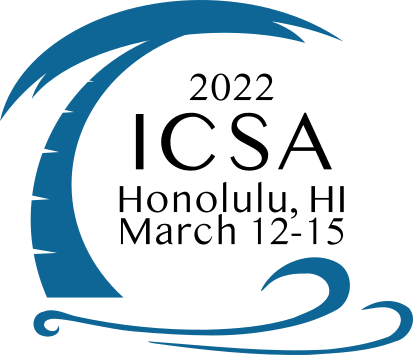Important Dates (applicable to all workshops)
Workshop Call for Submission: September 23rd, 2021
Paper submission: December 8th, 2021 (optionally abstract on Dec 1, 2021)
Paper notification: January 14th, 2022
Workshop program publication: February, 2022
Camera-ready workshop papers due: January 27th, 2022 (firm)
Workshop dates: to be announced
Notes: All deadlines are 23:59h AoE (anywhere on Earth)
BlockArch – 3rd Workshop on Blockchain-based Architectures
Organizers: Mohamad Kassab, Valdemar Vicente Graciano Neto, and Giuseppe Destefanis
Summary: Blockchain is an emerging technology that comprises a set of nodes connected through a peer-to-peer topology without a pre-existing trust relationship. The five essential characteristics of blockchain technologies; namely, decentralization, consensus, immutability, provenance, and finality, enable new forms of distributed software architectures, where agreement on shared states can be established without trusting a central integration point. A major difficulty for architects, designing applications based on blockchain is that technology has many configurations and variants. Since blockchains are relatively still at an early stage, there is little scientific evidence, product data, or reliable technology evaluation available to compare different blockchain-based architectural designs. The goal of the third workshop on Blockchain-Based Architecture (BlockArch’22) is to gather researchers and practitioners to share challenges, solutions, and reflections that emerge when architecting blockchain technologies. BlockArch2022 will solicit contributions from both academic and industrial participants, thus fostering active synergy between the two communities.
Website: https://ww2.inf.ufg.br/~insight/blockarch2022/index.html
QSA – 2nd Workshop on Quantum Software Architecture
Organisers: Johanna Barzen, Frank Leymann, Sebastian Feld, Manuel Wimmer
Summary: The goal of the QSA workshop is to bring together researchers and practitioners from different areas of quantum computing and (classical) software architecture to strengthen the quantum software community and discuss architectural styles and best practices of quantum software as well as other aspects of the quantum software development lifecycle. The workshop offers a platform for the presentation of novel scientific ideas as well as practical experiences and enables the exchange with experts from different areas of quantum computing.
Website: https://qsa-workshop.github.io/qsa2022/
FIST – 1st International Workshop on the Foundations of Infrastructure Specification and Testing
Organisers: Luciano Baresi (Politecnico di Milano, Italy), Giovanni Quattrocchi (Politecnico di Milano, Italy), Damian A. Tamburri (TU/e – JADS, Netherlands)
Summary: The current IT market is increasingly dominated by the “need for speed”. This need is reflected in the trending use of tactics which shorten the software development cycle and also intermix software development activities with IT operations, a trend commonly referred to as DevOps. As part of the DevOps menu, many practices entail re-using standard tools from software development (e.g., code-versioning, code-revision management, etc.) to manage what is known as Infrastructure-as-Code (IaC). IaC promotes concentrating knowledge and experience of infrastructures within a single commonly available, versionable, trackable and executable source file (literally) rather than traditionally pressuring such knowledge solely on system administrators. IaC covers automations for integration (compiling, testing, etc.), deployment (host procurement and configuration), and more.
The IaC trend has attracted and is continuing to attract a lot of attention from both academia and industry, warranting for a considerable relevance of the workshop both for theory and practice around the proposed topics. More specifically, academic and industrial studies indicate that looking at automating support to infrastructure code is crucial to obtaining actionable insights, practices, and patterns useful to enhance software architectures, software development and continuous operation in many possible ways.
This workshop represents both an opportunity for the exploratory depiction of the current state-of-practice along the lines of IaC development and quality assessment as well as a call to action for further work and transfer of theoretical-practical research around IaC from academia towards IaC practitioners in industry.
Website: https://sites.google.com/view/fist-2022
Workshop Chairs
Barbora Buhnova, Masaryk University, Czech Republic
Antony Tang, Swinburne University of Technology and VU University, Australia
